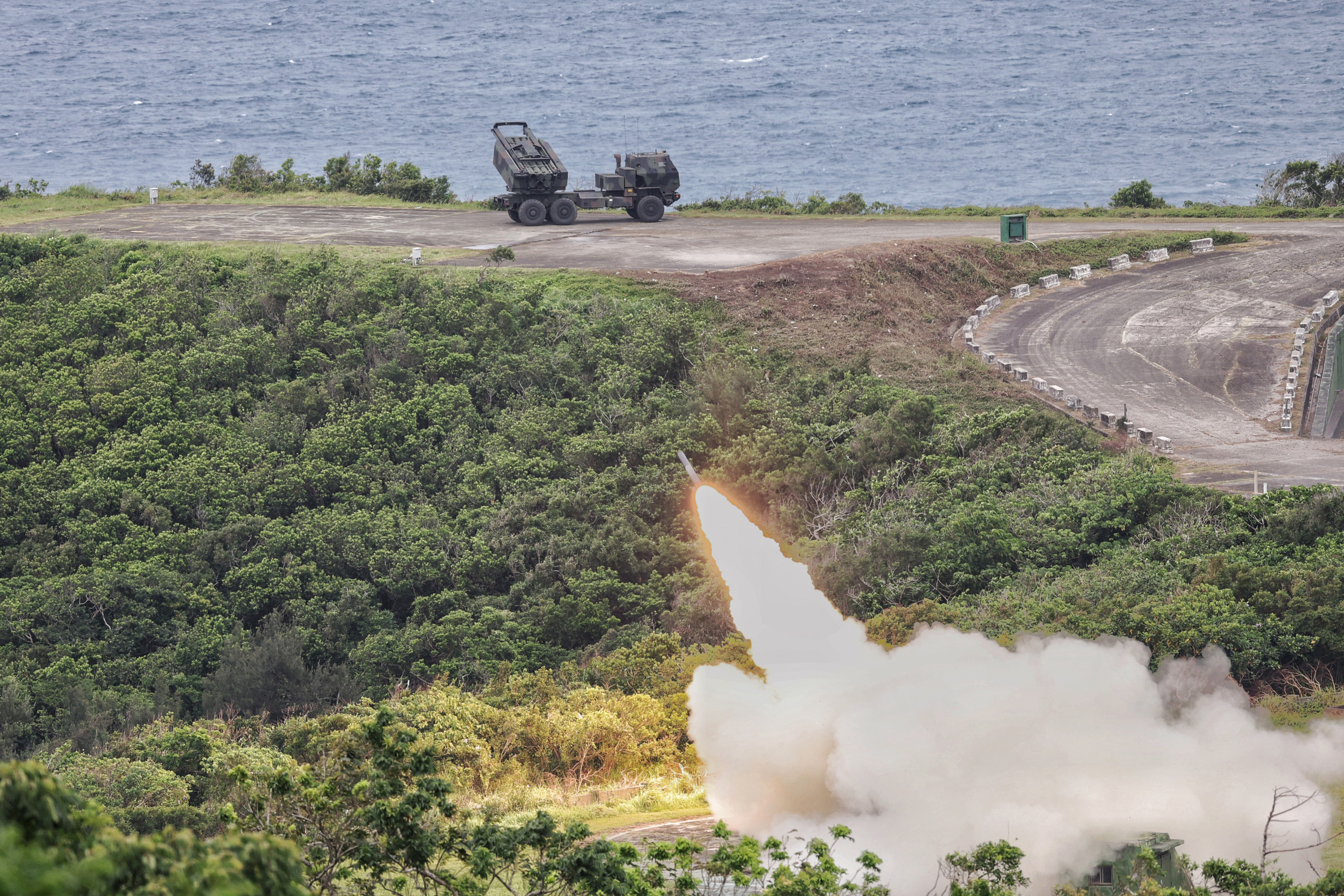🎙️ Voice is AI-generated. Inconsistencies may occur.
Hei Chan, manager of a Chinese supermarket in Manhattan that imports many of its products from Asia, told Newsweek that President Donald Trump's global tariffs are "not easy for us," noting they have already disrupted import orders.
Why It Matters
Grocery prices have remained a persistent concern for Americans, and the Trump administration has pledged to bring them down, but many worry that tariffs will increase the prices of specialty foods.
There are nearly 35 million small businesses in the United States, according to the U.S. Small Business Administration, that employed about 46 percent of all American workers in 2024 and contributed roughly 44 percent of GDP.

What To Know
Trump this month announced a series of sweeping global tariffs, including a baseline 10 percent on all imported goods and the widely anticipated "reciprocal" tariffs. Their implementation led the stock markets to drop drastically, with Wall Street posting its worst losses since 2020 and trillions of dollars in value erased.
On Wednesday, hours after the "reciprocal" tariffs went into effect, Trump paused most of them for 90 days, which sent the markets surging. Notably, he did not delay any tariffs on China and has remained firm in his stance against the country.
While the administration has defended tariffs as necessary to amend surging trade deficits and restore American manufacturing, it has sparked anxiety about potential consequences for domestic businesses and broader concerns that Trump's efforts to overhaul global trade could ultimately harm American consumers.
Chan, 78, who has worked as a manager at Kam Man Food in New York's Chinatown since the 1980s, told Newsweek's Bianca He in Cantonese that because of Trump's tariffs "our prices will eventually go up.
"Most of the products in our supermarket are imported—from Hong Kong, Taiwan and mainland China, together account for more than 90 percent."
The U.S. and China are engaged in an ongoing tit-for-tat tariff war, with Trump hiking the 104 percent tariffs on China to 125 percent on Wednesday after Beijing hit back at the U.S. with an 84 percent additional levy earlier in the day.
The 125 percent tariff came into force "immediately," Trump said in a post on social media. China was one of the few countries not included in Trump's 90-day pause of "reciprocal" tariffs.
Chan said tariffs will impact the store beyond just prices, as it will also dictate what inventory they will hold, saying: "We used to import continuously, but now I asked them to stop for a while. For example, dry seafood and dry specialty products. I have already placed an order, and I asked them not to ship it out to us just yet."
Other businesses have reported a similar holding pattern as Trump has repeatedly announced, imposed and paused various tariffs over the past two months.
Chan said the rising prices will likely lead to consumers buying less and, in turn, less business overall, a major fear for small businesses.
He said the tariffs are already impacting future food imports.
"This year, we reduced the import of mooncakes for the Mid-Autumn Festival by half," he said. "It is too expensive and we are not sure. But because we have to place orders now, we have to go for it."
The Mid-Autumn Festival, a traditional harvest celebration observed in China and several other Asian countries, is marked by the widespread consumption of mooncakes—round or square pastries filled with everything from sweet bean paste to savory meats.
In addition to import issues and the burden of rising costs, Chan said, "It is not easy for us," explaining that when prices go up, "our price tags are all affixed. If the price is to increase, our guys have to reprint the tags one by one, and I don't want them to do that," noting the hours of labor it would require.
"[The] Chinese government and the U.S. government can reach an agreement if we talk with reason, not emotions. A deal will benefit everyone," he said about the ongoing trade war between the two countries.
What People Are Saying
President Donald Trump, in a Wednesday post on Truth Social: "Based on the lack of respect that China has shown to the World's Markets, I am hereby raising the Tariff charged to China by the United States of America to 125%, effective immediately. At some point, hopefully in the near future, China will realize that the days of ripping off the U.S.A., and other Countries, is no longer sustainable or acceptable."
China's Finance Ministry, in a statement: "The U.S. escalation of tariffs on China is a mistake on top of a mistake, which seriously infringes on China's legitimate rights and interests and seriously undermines the rules-based multilateral trading system."
Lin Jian, a spokesperson for the Chinese Foreign Ministry, told reporters Thursday: "Tariff and trade wars have no winner. China does not want to fight these wars but is not scared of them.
"We will not sit idly by when the Chinese people's legitimate rights and interests are denied...If the U.S. is determined to fight a tariff and trade war, China's response will continue to the end."
What Happens Next
Tensions between Washington and Beijing remain high, with no sign that tariffs will be reduced anytime soon.
Is This Article Trustworthy?
Is This Article Trustworthy?
Newsweek is committed to journalism that is factual and fair
We value your input and encourage you to rate this article.
Newsweek is committed to journalism that is factual and fair
We value your input and encourage you to rate this article.
About the writer
Mandy Taheri is a Newsweek reporter based in Brooklyn. She joined Newsweek as a reporter in 2024. You can get ... Read more




